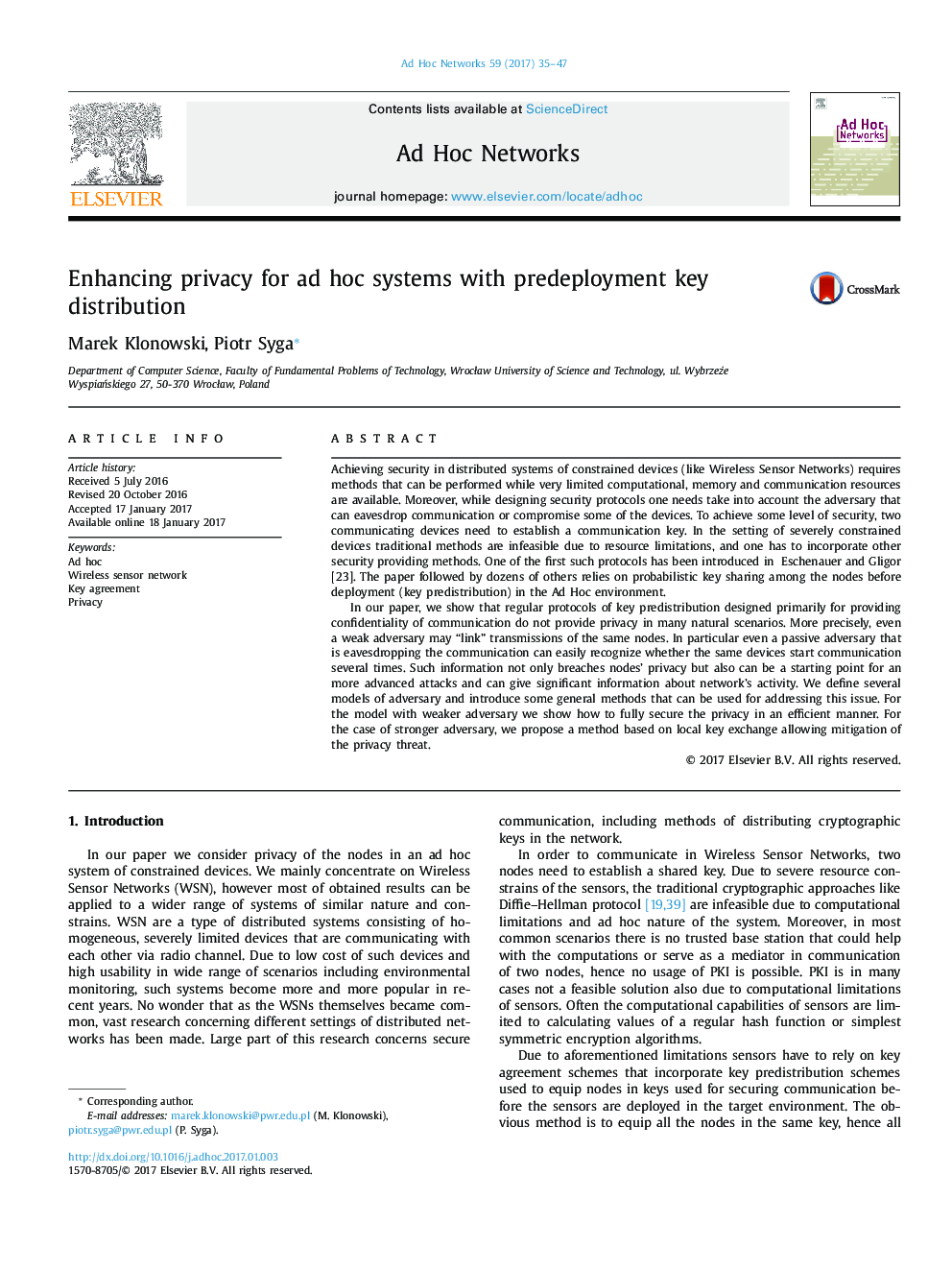| Article ID | Journal | Published Year | Pages | File Type |
|---|---|---|---|---|
| 4953591 | Ad Hoc Networks | 2017 | 13 Pages |
Abstract
In our paper, we show that regular protocols of key predistribution designed primarily for providing confidentiality of communication do not provide privacy in many natural scenarios. More precisely, even a weak adversary may “link” transmissions of the same nodes. In particular even a passive adversary that is eavesdropping the communication can easily recognize whether the same devices start communication several times. Such information not only breaches nodes' privacy but also can be a starting point for an more advanced attacks and can give significant information about network's activity. We define several models of adversary and introduce some general methods that can be used for addressing this issue. For the model with weaker adversary we show how to fully secure the privacy in an efficient manner. For the case of stronger adversary, we propose a method based on local key exchange allowing mitigation of the privacy threat.
Related Topics
Physical Sciences and Engineering
Computer Science
Computer Networks and Communications
Authors
Marek Klonowski, Piotr Syga,
